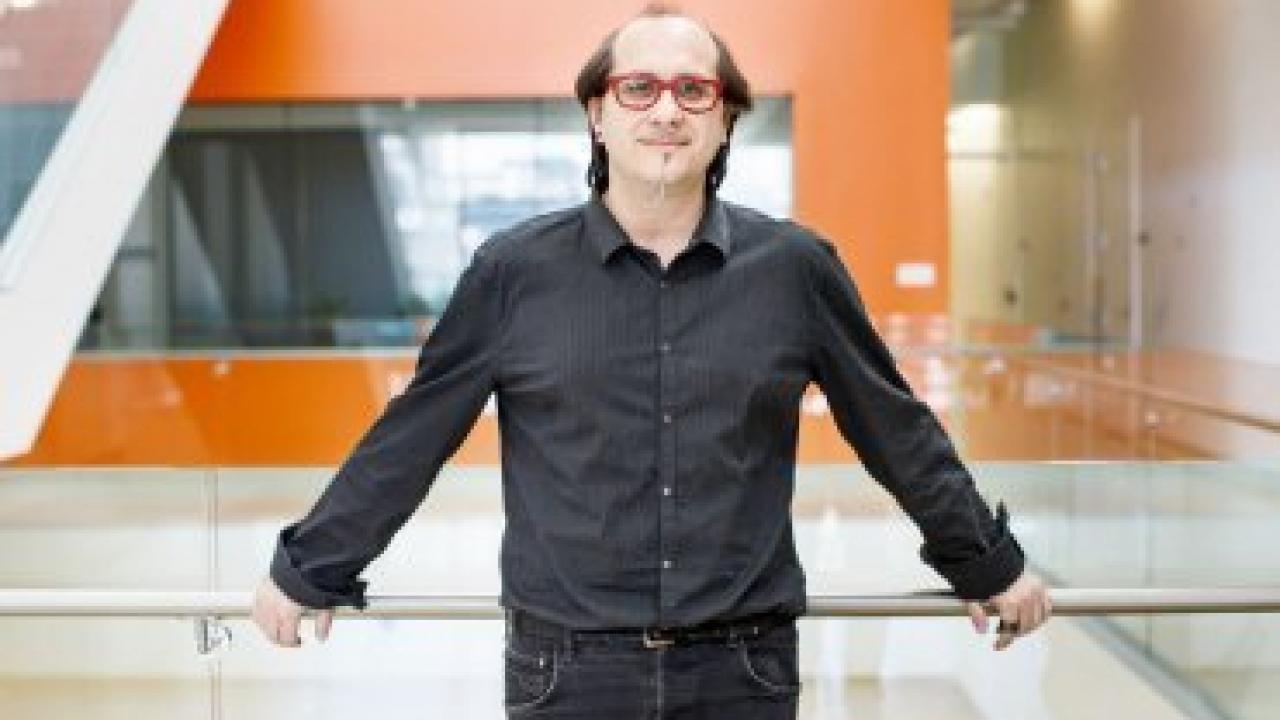
Davide Ruggero, PhD.
In a surprising finding, a team of UC San Francisco and Stanford University scientists has discovered that a protein thought to be crucial for the body to develop and function correctly can be reduced by half in mice with no apparent ill effects. More strikingly, the group found that the full complement of the protein normally found in cells can be hijacked by cancer cells to fuel their growth.
The work raises the possibility that targeted cancer drugs that lower levels of the protein could suppress tumor growth without affecting healthy cells. The findings are reported in the June 18, 2015 online issue of Cell.
“We thought this factor would be impossible to target based on our previous understanding, but that understanding seems to have been incorrect,” said co-first author Morgan L. Truitt, a UCSF graduate student in the Biomedical Sciences Program. “This represents a new and exciting finding in regard to how we might target the development of tumors.”
The protein, known as eIF4E, is a master regulator of a fundamental cellular process called translation and has widely been considered to be “untouchable” in experiments, said UCSF’s Davide Ruggero, PhD, who holds the Helen Diller Family Chair in Basic Cancer Research, and Maria Barna, PhD, assistant professor of developmental biology and genetics at Stanford, co-senior authors of the new study.
“The dogma in every textbook was that if you tweaked eIF4E in any way it would have profound and dramatic effects on cells and development of the embryo,” Barna said.
But when the research team engineered mice that carried only a single copy of the eIF4E gene, thereby reducing the “dosage” of the eIF4E protein in every cell by half, the mice developed normally into adulthood. In anatomical and physiological analyses conducted over several years, the mice have been found to be indistinguishable from normal mice.
“Our first thought was that this wasn’t possible — it was mind-blowing — so we’ve been very thorough in checking and re-checking the results,” said Ruggero, a member of the UCSF Helen Diller Family Comprehensive Cancer Center (HDFCCC).
During translation, strands of messenger RNA (mRNA) carry protein-making instructions from genes to ribosomes, the cellular machines in which proteins are made. In organisms ranging from yeast to mammals, eIF4E forms a key part of a complex that binds to a cap at the end of each mRNA strand and guides the strands to ribosomes. eIF4E is thereby thought to be essential for the production of all proteins, the final effector molecules that guide every cellular event.
Because this cap-binding function of eIF4E has been considered so essential, the researchers thought other known players in translation must somehow be working overtime in the engineered mice to take up the slack for the reduction in eIF4E. But in a series of experiments in the Ruggero laboratory led by Truitt and co-first author Crystal S. Conn, PhD, a postdoctoral fellow in the UCSF Department of Urology, they found no such compensatory mechanisms.
Once they were convinced that the 50 percent reduction in eIF4E had no apparent consequences for the engineered mice, the group next considered why mammalian organisms had evolved with so much “extra” cap-binding capacity, especially since previous research has shown that eIF4E is present at abnormally high levels in tumor cells.
“Cancer cells rely on increases in protein synthesis as a critical means for sustaining their growth and survival, for rapidly dividing and proliferating — a very big distinction from normal cells,” Barna said.